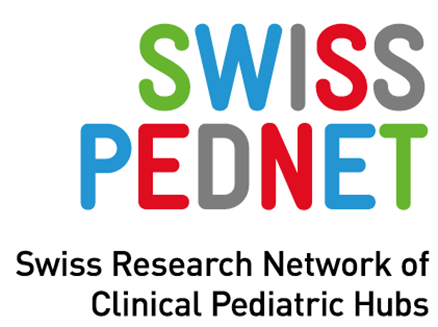4 November 2024
How good is the quality and accessibility of routine data for research?
In routine healthcare every day large amounts of data are generated which could be a valuable basis for research projects if access, quality and exchange between institutions are ensured. The potential for data research is particularly great in pediatrics, where the conditions for clinical research are especially challenging. A SwissPedNet project has now evaluated the quality and usability of health data in 9 Swiss children's hospitals.
Pediatric research hubs from Aarau, Basel, Bern, Geneva, Lausanne, Lucerne, St. Gallen, Ticino and Zurich took part in the "SwissPedNet Data Assessment" project. They were asked to carry out data extractions at their hospitals according to defined criteria and to assess the quality of the data according to predefined standards. They were also asked to document the work processes and any difficulties and challenges.
The first part of the project focused on demographic data such as gender, date of birth and the presence of a general consultant. The second part looked at disease-specific data on community-acquired pneumonia and type 1 diabetes mellitus.
Demographic data more readily available than disease-specific data
While data on gender and date of birth were almost completely and consistently available in all centers, there were some gaps in the evaluation of data on general consents. When extracting data on pneumonia and diabetes, all centers were able to identify cases, but the number, size and completeness of the data sets varied greatly. For example, data completeness for pneumonia was between 57 and 99 percent and for diabetes between 31 and 98 percent. The reasons for these large differences are manifold. However, the technical infrastructure and personnel resources mandated by a centre mainly play a role.
Different stages of digitalisation
Today, the data infrastructures in the individual hubs are very differently developed. The conditions range from fully functional data warehouses to a situation where data still has to be collected directly from various primary systems. Furthermore, not all hubs have the same number of equally well-trained staff available for such tasks. As a result, the efficient and uncomplicated exchange of data for joint research projects currently seems unrealistic.
Solutions are obvious
To make it easier for researchers to access routine data, complete digitisation and standardisation of data collection are crucial, e.g. through uniform classification systems such as ATC or ICD-10. Uniform quality checks would improve data quality, and user-friendly primary systems would enable more complete data collection. SwissPedNet hopes that all these investments will make future research projects possible, the findings of which will benefit the youngest patients.
In addition to improving accessibility to routine data for researchers through a complete and uniform conversion to digital systems, future efforts must focus on standardising data collection. The SwissPedData project supported by the Swiss Personalized Health Network (SPHN) has done important groundwork in this regard by defining a minimum data set. Standardised systems for quality checks during data preparation, such as those provided for in the national data streams, including SwissPedHealth, would improve data quality overall.

Aim of the network
- Strengthening pediatric clinical research
- Funding and coordination of clinical studies in all indication areas and age groups
- Support for pediatricians conducting research
- Strengthening social acceptance for studies involving children
Members of
- Children's Hospital Aarau
- University Children's Hospital Basel
- University Children's Hospital Bern
- Fribourg Children's Hospital
- University Children's Hospital Geneva
- University Children's Hospital Lausanne
- Children's Hospital of Central Switzerland (KidZ)
- Eastern Switzerland Children's Hospital, St. Gallen
- Children's Hospital of the EOC Ticino
- University Children's Hospital Zurich
- SwissPedRegistry
- SwissPedPha
SwissPedNet Data Assessment" project
Objectives
- Evaluation of the accessibility, completeness and consistency of routine clinical data
- Identification of data gaps and challenges in data extraction
- Standardisation of data formats and variables
- Evaluation of data interoperability and usability of data
Project lead
- PD Dr. med. Julia Bielicki, Head of Pediatrics and Infectiology and Medical Coordination of the Pediatric Research Center, UKBB
- Pia Neuschwander, PhD, Data Scientist, DKF
- Linda Stamm, Project Manager Pediatric Research Center, UKBB

"A better understanding of the availability and quality of routine data from pediatric medicine and pediatric surgery clinics in Switzerland would not only enable high-quality data research, but also has the potential to reduce the burden on children and families through additional visits and sampling in prospective clinical research.
The "SwissPedNet Data Assessment" was an important step in understanding the relevant basic building blocks in Switzerland beyond SwissPedHealth."
PD Dr. med. Julia Bielicki, Head of Pediatrics and Infectiology and Medical Coordination of the Pediatric Research Center, University Children's Hospital Basel
